Entertainment
/ArcaMax
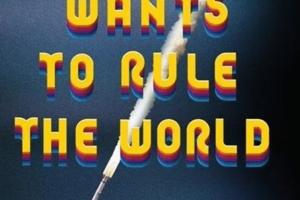
How Ace Atkins mined his '80s youth for spy thriller 'Everybody Wants to Rule the World'
For more than a decade, novelist Ace Atkins kept a rigorous schedule and a prolific pace in his small writing office in Oxford, Mississippi.
A cup of coffee, and then to work, writing 21 books – 11 in his Quinn Colson series, another 10 in Robert B. Parker’s Spenser series – from 2011 to 2022.
“That was kind of my life for about a ...Read more
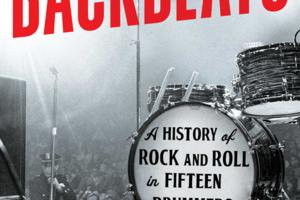
Review: You love their music, now find out who these musicians are
If you’re a music fan who hasn’t thought much about drumming (I’m guilty on both counts), “Backbeats” will be a revelation.
Amateur drummer John Lingan divides his book into 15 chapters about 15 drummers. They’re not his favorites, he says, but they’re the ones he thinks have had the most impact on rock music. To get this weakness...Read more
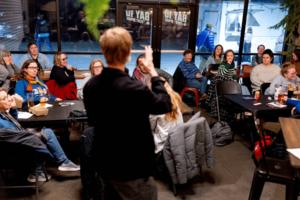
Does your book club have problems? Facilitators tackle 'behavioral issues'
MINNEAPOLIS — On occasion, what a book club needs most is for one person to tell another person to shut up.
That’s when a book club facilitator could help.
“When a club wants a facilitator, it’s usually because of behavioral issues,” said Cindy Kalland, who lives in Eden Prairie and is a retired teacher. “It may just be that they�...Read more
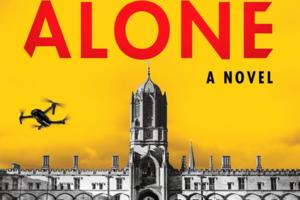
Charles Beaumont was a spy. Now he's writing spy novels
Charles Beaumont is not this author’s real name; it’s the nom de plume of a former MI6 operative who now writes novels. And “A Spy Alone” and “A Spy at War,” which are part of his Oxford Spy Ring series, are terrific, very contemporary tales that are best-sellers in the U.K.
Here, he dead-dropped his responses to the Book Pages Q&A...Read more
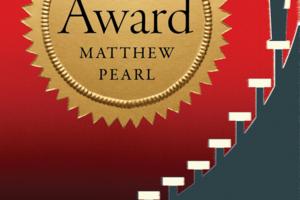
Review: And 'The Award' goes to ... a truly terrible person
“Be Careful What You Wish For” would be a more descriptive title for “The Award.”
An aspiring novelist named David Trent is the antihero of Matthew Pearl’s newest book. (Pearl is the author of “The Dante Club” and its droll sequels, in which Henry Wadsworth Longfellow, Oliver Wendell Holmes and other three-named legends solve ...Read more
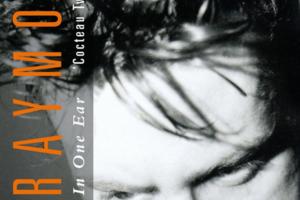
Q&A: Why Cocteau Twins' Simon Raymonde says the group is more popular than ever
Simon Raymonde had for years refused to write a memoir about his life in Cocteau Twins, the dreamy British post-punk group he’d been in with Elizabeth Fraser and Robin Guthrie from 1983 to 1997.
He’d never cared much for rock musician memoirs, finding most shallow and uninspired. And since Cocteau Twins ended, he’d been focused on his day...Read more

Column: Shea Serrano's 'Expensive Basketball' headlines remarkable year for Latino sports books
When Fernando Mendoza won the Heisman Trophy this month with another Latino finalist looking on from the crowd, the Cuban-American quarterback did more than just become the first Indiana Hoosier to win college football's top prize, and only the third Latino to do so. He also subtly offered a radical statement: Latinos don't just belong in this ...Read more
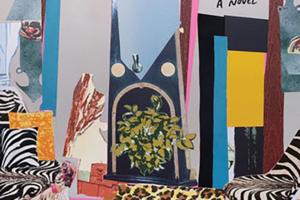
46 best books of 2025: Our top fiction and nonfiction book recommendations
It was the best-of times (you know, that period in December when we do the best-of lists).
But it could feel like the worst of times: There’s so much to read before the year finishes!
Well, there’s good news. You can read these books whenever you want — this year, next year, Leap Day, anytime. This best-of thing isn’t really a ...Read more

Column: Political giants and moral degenerates: My five best books of 2025
The blame for America’s current troubles lies squarely with the Democratic establishment. Donald Trump’s re-election was always unlikely given his low approval ratings and divisive style. The Democratic establishment turned it into a certainty by: (1) running an aged and obviously ailing candidate (2) using its power over the press, almost a...Read more
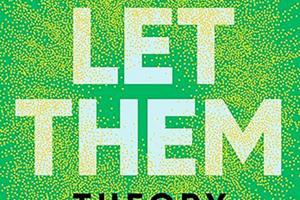
This week's bestsellers from Publishers Weekly
Here are the bestsellers for the week that ended Saturday, Dec. 13, compiled from data from independent and chain bookstores, book wholesalers and independent distributors nationwide, powered by Circana BookScan © 2025 Circana.
(Reprinted from Publishers Weekly, published by PWxyz LLC. © 2025, PWxyz LLC.)
HARDCOVER FICTION
1. "The Widow: A ...Read more
This week's bestsellers from Publishers Weekly
Here are the bestsellers for the week that ended Saturday, Dec. 13, compiled from data from independent and chain bookstores, book wholesalers and independent distributors nationwide, powered by Circana BookScan © 2025 Circana.
(Reprinted from Publishers Weekly, published by PWxyz LLC. © 2025, PWxyz LLC.)
HARDCOVER FICTION
1. The Widow. ...Read more
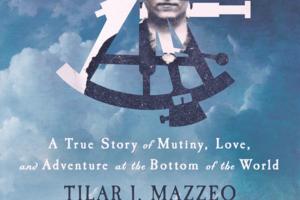
Review: 'The Sea Captain's Wife' did his job; she wasn't paid
“The Sea Captain’s Wife” is a riveting tale about the journey of a clipper ship from New York to San Francisco in 1856.
As the ship rounds Cape Horn — there is, of course, no Panama Canal yet — a hurricane hits. The ship pitches and tosses, washed over with 50-foot waves. This is one of the worst storms in years, “a veritable ...Read more
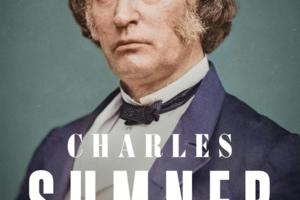
Capitol Hill insiders share favorite books of 2025
WASHINGTON — Between a government shutdown, three vote-a-ramas in the Senate and a new president taking office, it’s been a busy year for members of Congress. But spending bills weren’t the only page-turners they read.
Every December, we ask lawmakers, lobbyists, think tank types and other Beltway insiders the same question: What did you ...Read more

Those blurbs on book covers? Don't believe what you read
When book lovers grabbed William Kent Krueger’s early novels because of Lee Child’s praise on the cover — “Krueger hits the sweet spot every time” — there was just one issue: Child hadn’t read the books.
“Lee’s a pretty good friend. I asked him for a quote and he said, ‘I can’t read the book, Kent. I don’t have enough ...Read more
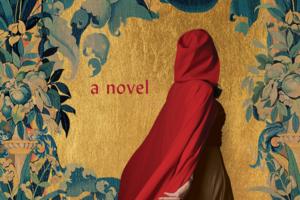
Review: 'Canticle' immerses readers in 13th-century mysticism
The cover of “Canticle” depicts a woman in a vibrant red, hooded cloak swirling away from the reader.
It hints at what’s inside: a mystical story that immerses us in an earlier century, in the vein of Lauren Groff’s "Matrix" or Sue Monk Kidd’s "The Book of Longings.“ If you loved either of them, as I did, you might have a hard time ...Read more
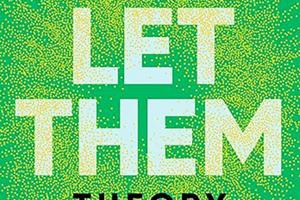
This week's bestsellers from Publishers Weekly
Here are the bestsellers for the week that ended Saturday, Dec. 6, compiled from data from independent and chain bookstores, book wholesalers and independent distributors nationwide, powered by Circana BookScan © 2025 Circana.
(Reprinted from Publishers Weekly, published by PWxyz LLC. © 2025, PWxyz LLC.)
HARDCOVER FICTION
1. "The Widow: A ...Read more
This week's bestsellers from Publishers Weekly
Here are the bestsellers for the week that ended Saturday, Dec. 6, compiled from data from independent and chain bookstores, book wholesalers and independent distributors nationwide, powered by Circana BookScan © 2025 Circana.
(Reprinted from Publishers Weekly, published by PWxyz LLC. © 2025, PWxyz LLC.)
HARDCOVER FICTION
1. The Widow. John...Read more

Sophie Kinsella, author of 'Shopaholic' book series, dies. 'We are heartbroken,' family says
Sophie Kinsella, bestselling author of the “Confessions of a Shopaholic” book series, has died days before her birthday, her family announced on Wednesday. She was 55.
“We are heartbroken to announce the passing this morning of our beloved Sophie (aka Maddy, aka Mummy). She died peacefully, with her final days filled with her true loves: ...Read more
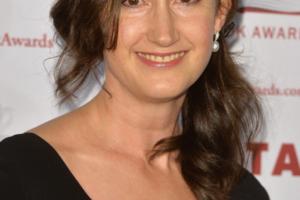
Sophie Kinsella, author of 'Shopaholic' book series, dies. 'We are heartbroken,' family says
Sophie Kinsella, bestselling author of the "Confessions of a Shopaholic" book series, has died, her family announced on Monday. She was 55.
"We are heartbroken to announce the passing this morning of our beloved Sophie (aka Maddy, aka Mummy). She died peacefully, with her final days filled with her true loves: family and music and warmth and ...Read more

Holiday book guide 2025: The best gift books of the season, paired to some very specific people
My favorite part of the holidays is giving someone a book. I’m that person who gives everyone on my list a wrapped book then I joke it’s a box of socks. My least favorite part of the holidays, however, is realizing months later they still have not opened that book.
The secret to a happy pairing?
Being honest about who that person is, not ...Read more










